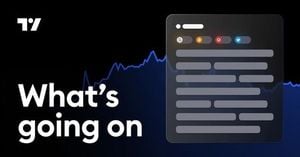On July 5, 2025, tens of thousands of aspiring military civil servants across South Korea gathered to take the highly competitive 2025 military civil servant written examination. Administered by the Ministry of National Defense alongside various military headquarters, the exam took place nationwide with key test centers such as Seokyeong University in Seongbuk-gu, Seoul, serving as hubs for thousands of candidates.
This year, the exam attracted a staggering 23,052 applicants, reflecting a robust interest in military civil service careers. The competition was fierce, with an average ratio of 5.5 candidates vying for every available position. Such high demand underscores the appeal and prestige associated with roles in the military’s civil workforce, which blend public service with the unique challenges and benefits of military administration.
As examinees completed their tests, a new wave of digital assistance emerged to support them immediately after the exam. Hackers Military Civil Servant, a specialist in military exam preparation, launched its innovative “Pass Prediction Full Service” on exam day. This service enables candidates to grade their own answers in real time via PC or mobile devices, offering a level of immediacy and transparency previously unseen in such large-scale examinations.
Users of the service can choose between two grading methods: a detailed exam paper grading or a simpler, quicker grading option. Behind the scenes, the platform employs a sophisticated big data-driven process to calculate cutoff scores and provide precise pass predictions instantly. This technological integration not only eases candidate anxiety but also empowers examinees to gauge their performance accurately as soon as they leave the test center.
Complementing this grading service, Hackers Military Civil Servant also offers expert-led commentary lectures tailored to the exam’s subjects. Renowned instructors such as Shin Min-sook for Korean language, Kim Dae-hyun for Administrative Law, Song Sang-ho for Administrative Studies, and Lee In-ho for Business Administration deliver detailed analyses of exam questions. These lectures help candidates quickly identify their mistakes and understand complex topics, enhancing their preparation for future attempts or subsequent exam stages.
To add excitement and incentivize participation, Hackers Military Civil Servant rolled out a series of engaging events on exam day. Candidates who complete their grading by specific times receive rewards via Naver Pay: 3,000 won for grading by 6 PM, 2,000 won by 7 PM, and 1,000 won by 8 PM. Additionally, all participants who grade by midnight receive a sweet treat called Saecomdalcom. New members registering on the platform and completing grading on July 5 also earn a 3,000 won Naver Pay bonus upon verifying their exam admission ticket.
Beyond immediate rewards, participants who use the grading service gain access to exclusive discount coupons, including a substantial 300,000 won off Hackers Military Civil Servant pass packages, 30% off single-subject lectures, and 10% off interview preparation courses. These offers aim to support candidates’ continued learning and success in their military civil servant journeys.
The excitement doesn’t stop there. An automatic raffle enters graders into a prize draw for coveted items such as an iPad 11 (A16 chip), BBQ Golden Olive Chicken and Cola sets, and Domino’s Pizza Potato and Cola sets. Furthermore, a “Grading Certification Word-of-Mouth Event” encourages candidates to share their grading experiences on designated online communities. The individual with the highest number of posts receives an impressive 50,000 won in Naver Pay, while every three posts earn an additional 3,000 won, fostering a vibrant community of support and encouragement.
These digital and social initiatives reflect a broader trend in South Korea’s approach to civil service exams—leveraging technology and community engagement to enhance candidate experience and transparency. The military civil servant exam, traditionally a high-stakes and nerve-wracking event, is now accompanied by tools that demystify results and offer immediate feedback, a welcome change for many.
According to News1’s coverage from the exam site at Seokyeong University, the atmosphere was charged with anticipation as thousands of hopefuls entered the exam halls early in the morning. The Ministry of National Defense’s coordination ensured smooth administration across the country, maintaining strict standards to uphold the exam’s integrity.
With such a large pool of candidates and a competitive ratio of 5.5 to 1, the stakes are undeniably high. For many, passing this exam represents a gateway to a stable career with the military, combining public service with opportunities for advancement and personal growth. The availability of real-time grading and expert analysis is likely to influence how future candidates prepare and perceive these exams.
As the day progressed and results began to filter through, candidates could immediately assess their prospects thanks to Hackers Military Civil Servant’s innovative service. This instant insight helps reduce the usual anxiety associated with waiting weeks or months for official results, allowing candidates to plan their next steps more effectively.
For those who did not succeed this time, the detailed feedback and expert lectures provide a roadmap for improvement, while the discount coupons and community events encourage continued engagement and preparation. For successful candidates, the service offers reassurance and celebration, turning a traditionally solitary experience into a shared journey.
In sum, the 2025 military civil servant exam not only showcased the enduring appeal of military public service careers in South Korea but also highlighted how technology and community initiatives are transforming the exam experience. As thousands await their official results, the combination of rigorous testing, real-time feedback, and supportive educational resources marks a new chapter in military civil servant recruitment.




